Introduction
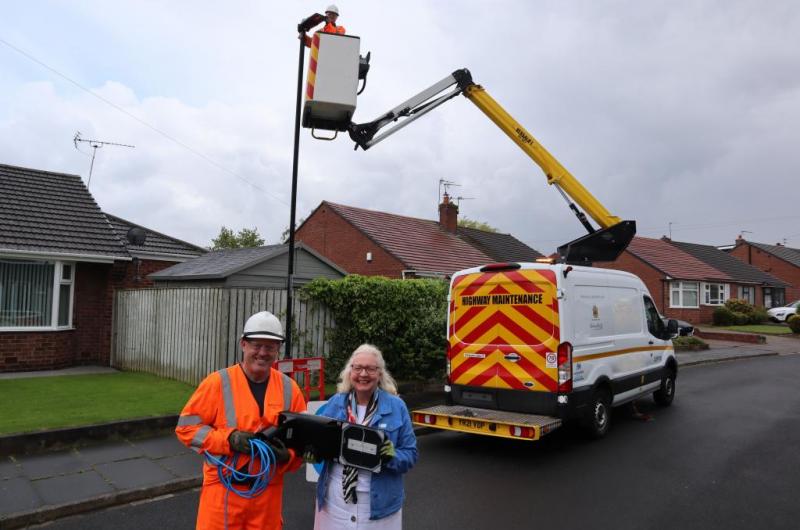
We are making huge inroads in our ambitious Carbon Net-Zero 2030 projects, and we have big plans for the coming years. Within our Carbon Net-Zero 2030 Action Plan, we have identified 150 individual actions that we will take which will help the Council towards reaching its target to be carbon net-zero by 2030.
See some of our key projects and achievements are highlighted below.
Council buildings and heating
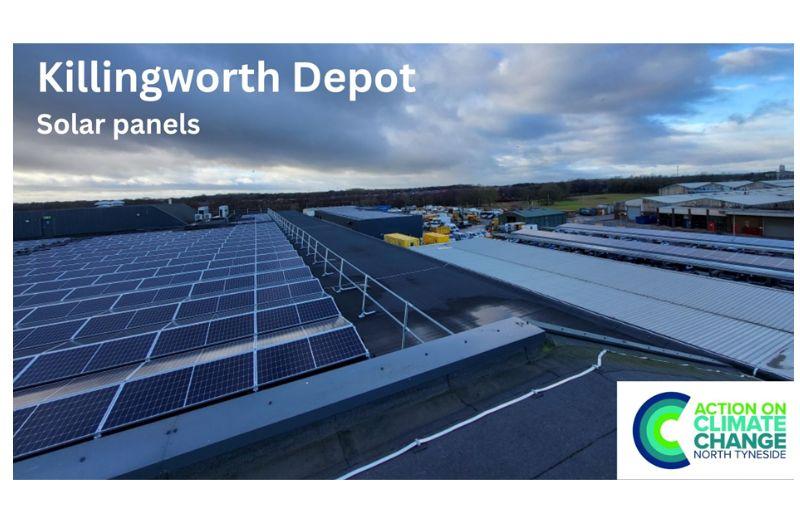
Green Homes Grant
£3.2 million has been made available for low-income households to improve the energy efficiency of their homes provided through the Green Homes Grant scheme. The scheme offers homeowners up to £10,000 to have a range of energy efficient and low carbon measures installed at home, including:
- External wall insulation
- Solar PV
- Air source heat pumps
Find out more here: Green Homes Grant.
Our homes, offices and depots
In partnership with E.On, we have installed solar panel systems on over 1,400 council houses, produced 3,000 megawatt hours of renewable electricity in 2020. This is equivalent to 754 tonnes of carbon dioxide emissions.
Our £12 million retrofit of our Killingworth Site means it now boasts range of green features such as energy efficient heating and lighting systems, solar panels and will soon have recycled electric vehicle car battery systems to support energy storage and re-use across the site.
We also secured £3.2m funding from the Government’s Public Sector Decarbonisation Grant to install low carbon heating and energy efficiency measures in four our other most carbon intensive buildings.
We have developed nine affordable homes on a former garage site using a modern method of construction called HUSK. These homes will use electricity as a form of heat and benefit from solar panels and air source heat pumps, which extract heat from the air to heat a building
Heat networks
We recognise a range of potential impacts and opportunities associated with the assessment of the borough for heat network development. This is a way in which heat, and, in some cases, power can be supplied to a range of buildings over a large geographical area through underground pipes and a single energy centre. In some cases, the heat and power can be supplied by low zero carbon heat sources, such as mine water and air source heat pumps. If constructed correctly, heat networks can provide more efficient and low carbon heat sources than existing gas boilers and there can also be a potential for cost savings to residents and businesses. We have been looking into it in North Tyneside – read more about the Killingworth Heat Network feasibility study
Transport
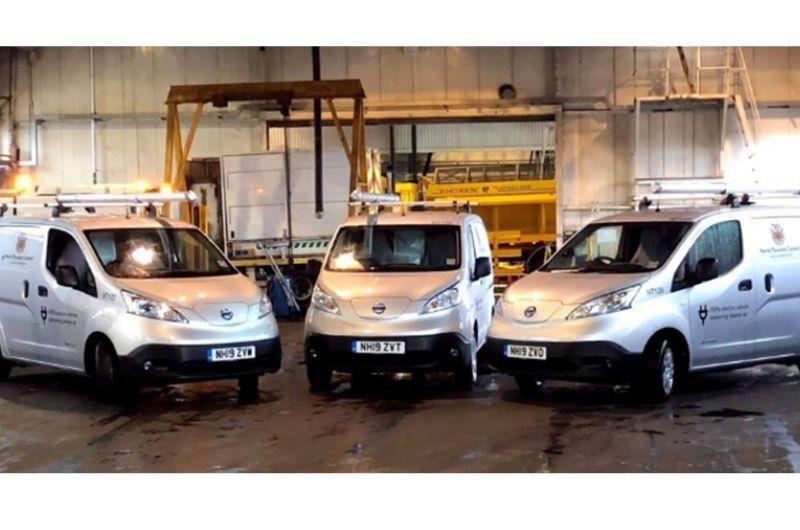
Our vehicles
We’re carrying out a full review of our vehicle fleet and replace all small diesel vehicles (and some medium size vehicles) with electric, where options are available and where this can be supported financially. We have also trialled the use of an electric refuse collection vehicle
EV charging points
We know how important accessible charging points are to residents and increasing the use of electric vehicles to support a sustainable borough is also hugely important to us. In the same way that providing petrol pumps doesn’t fall under the remit of the council, chargepoints are provided by private providers. However, the council does already host chargepoints in a number of our car parks across the borough and we will continue to work with the commercial market on identifying opportunities to install chargepoints at many more council-operated car parks and leisure centres. We will also ensure chargepoints are included as part of new housing developments
Zero Emissions Vehicle Strategy
We have a Zero Emissions Vehicle Strategy
Sustainable travel
Secured almost £9m funding to provide an additional 14 kilometres of cycle routes and improve active travel and public transport.
Planning and land use
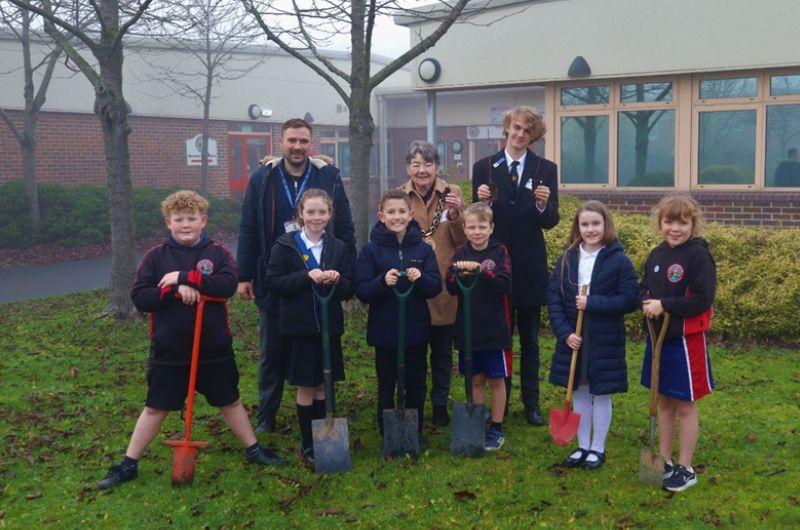
North East Community Forest
We are part of the £30m North East Community Forest Project, which will see the equivalent of almost 6,000 rugby pitches of new woodlands, hedgerows, orchards and trees planted by 2050 across North Tyneside, Newcastle, Gateshead, South Tyneside, Sunderland and County Durham.
Tree planting locations
We have identified a number of sites in North Tyneside that we are excited to propose tree planting for. This includes the planting of native tree species along the existing tree line on the amenity grassland at Henley Gardens in Wallsend. The planting of these trees will strengthen and enhance the existing tree line that separates the grassland from the A19. This will have several positive effects including a reduction of the audio and visual impact of the A19, as well as removing harmful emissions from the atmosphere and an increase in the biodiversity in the area. In 2023, we are planting over 10 hectares of woodland, which includes three hectares of replacement trees recently damaged by storms.
LED street lighting
Over £4.3m is being spent to convert almost 20,000 street lights to energy efficient LED. This will complete our street lighting LED programme
Biodiversity
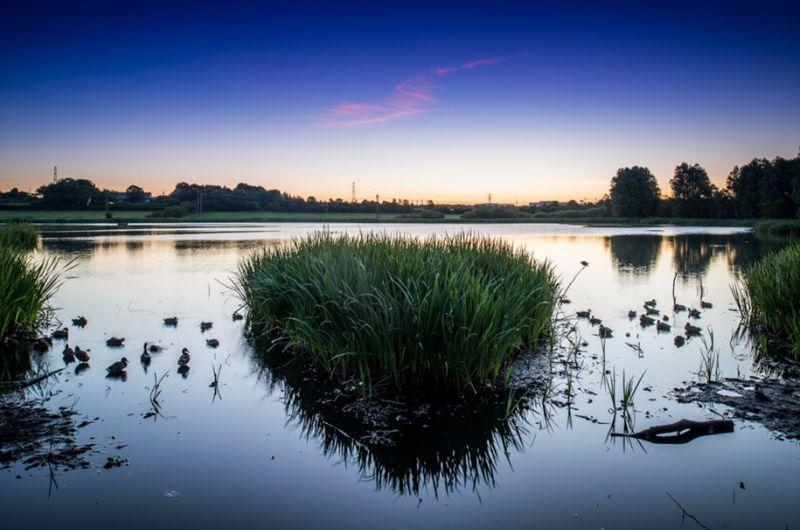
Due to the national decline of bees, butterflies and other important species, we want to create more biodiversity across our borough. Locations have been carefully selected to provide a home and food for butterflies, bees, birds and small animals.
Newcastle and North Tyneside Biodiversity Action Plan deals with priority habitats and species in the Newcastle and North Tyneside area which are considered to be under threat locally and nationally. The plan aims to manage our natural environment effectively and protect these natural resources. This supports the national Plantlife campaign endorsed by Alan Titchmarsh.
Collaboration and engagement
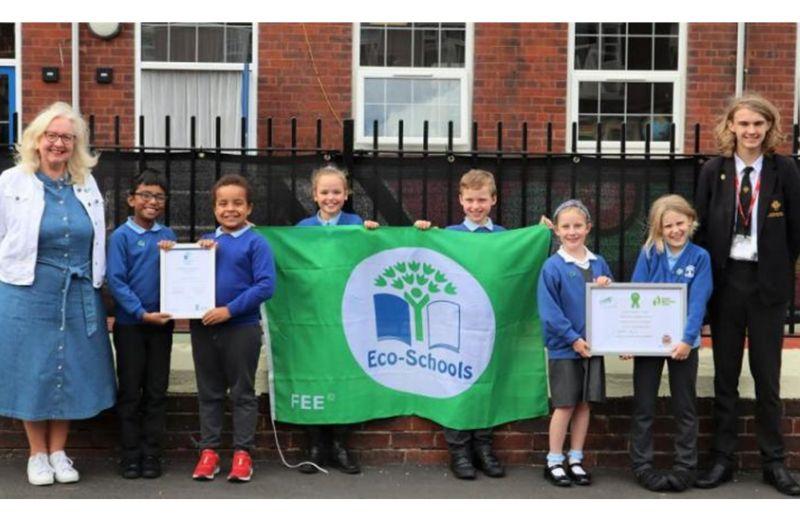
Climate Emergency Board
We have established a borough-wide Climate Emergency Board to address the urgent need for action in the fight against climate change. The board is made up of public sector organisations and commercial and industrial businesses, collectively working to combat the climate crisis. This was one of the outcomes of our “Call for Evidence” event during the United Nation’s Climate Change Conference of the Parties 26 (COP26), which included collaboration with large organisations and stakeholder groups in the Borough. The rirst Annual Report from the Board can be found below.
Action on Climate Change brand
We have developed an ‘Action on Climate Change’ brand and logo which is used on some of our vehicles, and on printed and digital communications on climate emergency work in the borough. This is an umbrella brand with opportunities for residents, organisations, schools and businesses to use it to showcase their sustainability work. It also features in a behavioural change campaign to help residents, businesses, stakeholder and visitors to take steps towards reducing carbon dioxide emissions.
School engagement
We work closely with schools across the borough to help them achieve the internationally recognised Eco-Schools Green Flag award. The Green Flag award showcases the fantastic work that schools do as part of their Environmental Committees
Call for evidence event
We hosted a “Call for Evidence” event during the United Nation’s Climate Change Conference of the Parties 26 (COP26), including large organisations and stakeholder groups in the Borough. This helped to shape our plans around climate emergency, waste, recycling and reducing single use plastics usage.
Related documents
Waste reduction and food
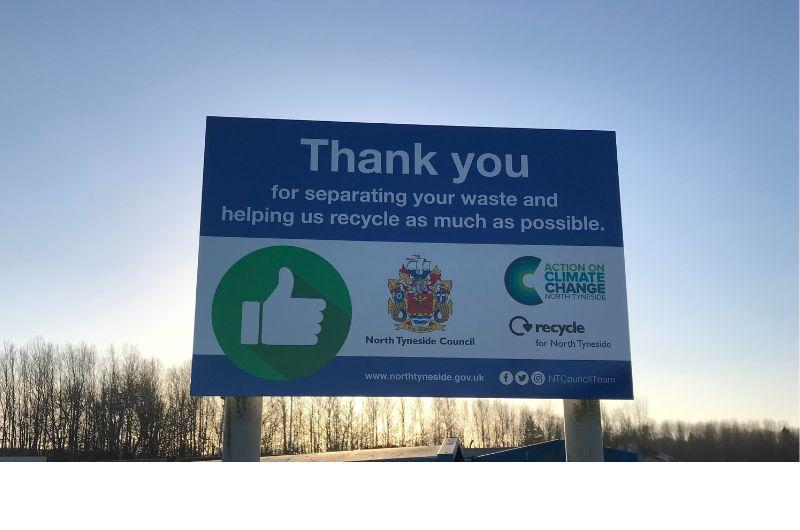
Reuse shop
We are in discussions with our private sector partners about opening a reuse shop at our Household Waste Recycling Centre (HWRC). This would reduce the amount of waste processed at HWRC while offering financial benefits for residents looking to purchase second-hand items.
Food waste collection service
We are looking into introducing a sperate food waste collection service. Currently, food waste is sent to landfill where it rots and releases greenhouse gasses such as methane. When recycled, food waste can be turned into fertiliser for farming and energy, as well as bringing about cost saving benefits.
